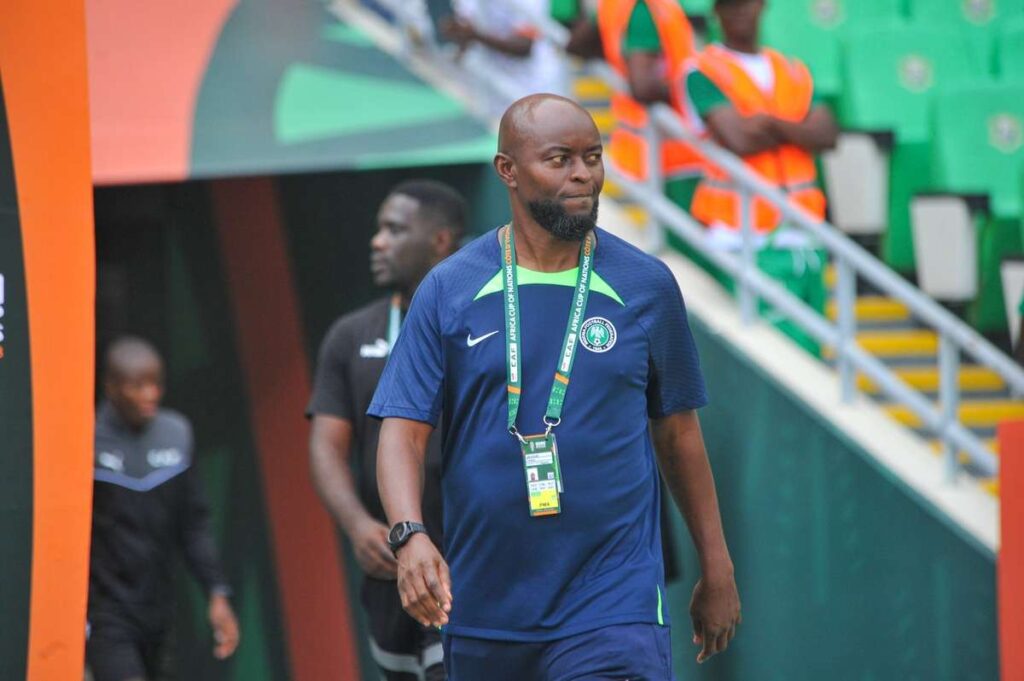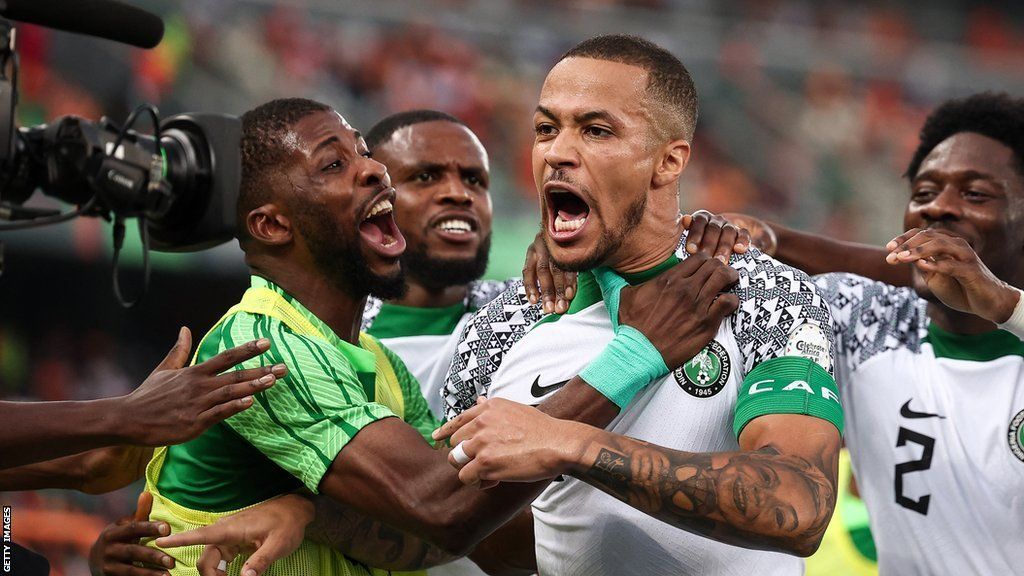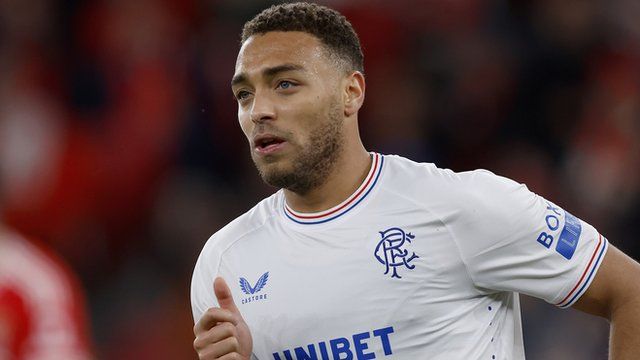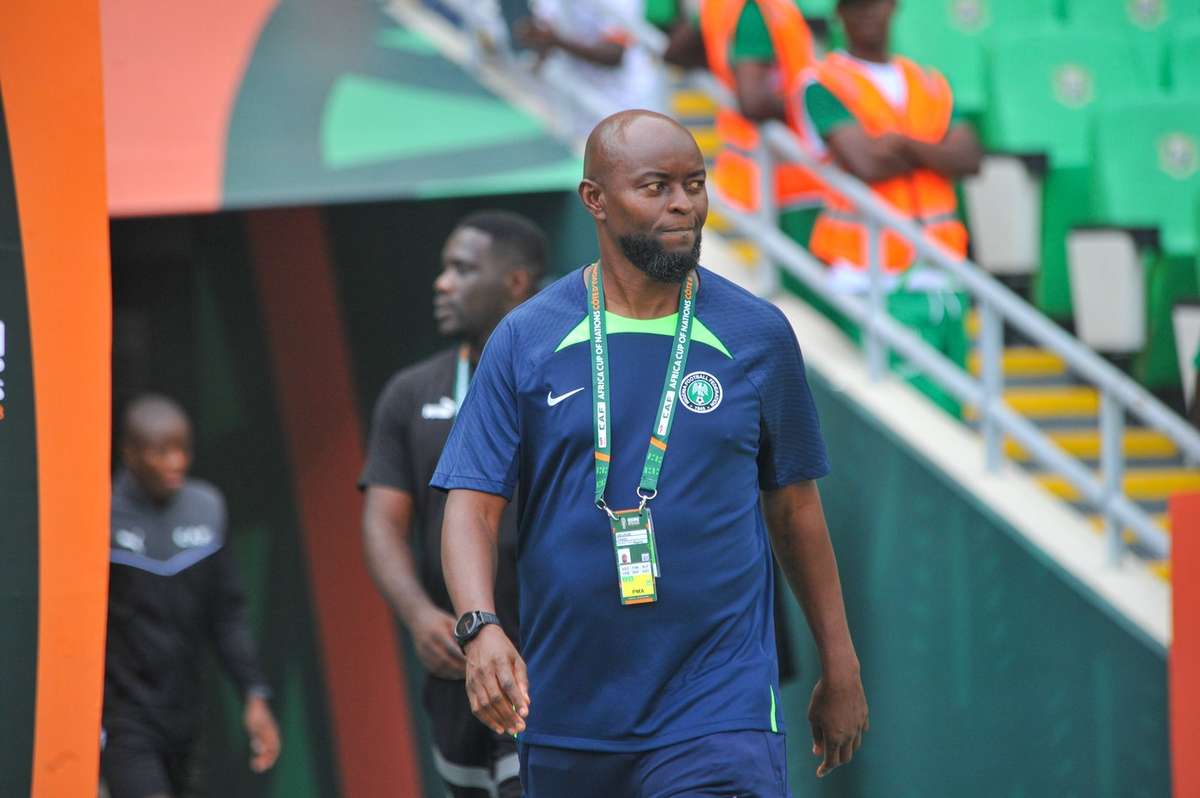
Amidst the uncertainty following Jose Peseiro’s departure as Nigeria coach, this month’s friendlies represented an opportunity for erstwhile assistant Finidi George to stake a claim for the national team job.
The Enyimba coach is, according to reports, one of as many as 30 applicants for the Super Eagles role on a full-time basis.
The 52-year-old was placed in charge for games against Ghana and Mali, with the view that a good pair of results would bolster the former international’s chances.
The outcomes in Morocco, however, were mixed – with the 2-1 win over the Black Stars followed by a 2-0 defeat by Mali.
Public reaction swung from positive to negative over the space of four days, with critics saying George is not ready for the top job.
However, veteran defender Kenneth Omeruo is keen for the 1994 Africa Cup of Nations winner to be handed the reins.
“One difference is he wants us to play good football and I like that,” the 30-year-old told BBC Sport Africa.
“I actually think he knows what he is doing, and he deserves to be given the job.”
Choices limited by injuries
Detractors point to the manner in which Mali dominated the contest in Marrakech on Tuesday as proof of George’s unsuitability for the role.
His decision-making around selection and substitutions has also been questioned, with many struggling to understand the lack of minutes afforded to players such as Nathan Tella, Fisayo Dele-Bashiru, Umar Sadiq and back-up goalkeepers Olorunleke Ojo and Francis Uzoho.
While these are valid concerns, his defenders have been quick to cite mitigating circumstances.
George only assumed the role a few days before facing Ghana and, while the execution of his tactical ideas has not been perfect, both friendlies were departures from the defence-first approach that held sway in the latter days of Peseiro.
The former Ajax, Real Betis and Ipswich Town winger also had to contend with a number of injuries to key players, as close to half the starting XI from the 2023 Africa Cup of Nations final in February was unavailable, impacting team chemistry and limiting options.

While George has to bear responsibility for his choices he was also dealt a poor hand, having been tasked to lead the Super Eagles with no technical assistance aside from goalkeeping coach Abiodun Baruwa .
It is also not the case that Mali, quarter-finalists at the recent Nations Cup, are a side Nigeria should be embarrassed to lose to.
Perhaps the biggest point in George’s favour is that the players have responded well to his coaching.
“The training programs were very good and players were giving 100 percent in training,” Omeruo said.
“I think we played very good football [in the] second half (against Mali). We weren’t waiting to be attacked. If we converted our chances, we could have done the job.”
Former winger George cages strikers
George’s decision to start the match against Mali without a focal point in attack, though ultimately futile, could be seen as him seeking to address the inevitable shortfall in midfield against a team which routinely fields four central midfielders.
Natural strikers Sadiq and Cyriel Dessers were surprisingly left on the bench, with George opting for Leicester City’s Kelechi Iheanacho in the lead striker role and winger Moses Simon behind him.
Dessers replaced Simon, who was stretchered off injured after 29 minutes, and blasted a great chance over the bar in the 64th minute.
A first-half goal from El Bilal Toure, following a defensive slip by Chidozie Awaziem, and Kamory Doumbia’s superb late strike gave the Eagles their first win over Nigeria in almost 49 years.
The decision not to field a recognised striker was a gamble that did not pay off, but the stakes are so high for the Super Eagles that such an error, even in a friendly, is considered by many as indicative of the risk involved in hiring George.

Having dropped four points at the start of their qualifying campaign for the 2026 World Cup, Nigeria will reconvene in June knowing that maximum points against South Africa and Benin are key to getting back on track in Group C.
Under those circumstances, entrusting the role to George is seen as a leap of faith – one which could make or break the Super Eagles’ chances of reaching the finals.
The coach, for his part, has refused to comment on the possibility of getting the job on a permanent basis, declaring himself grateful for the chance to manage the team for two important friendlies.
“I think it was just a few mistakes that cost us the match,” George said after the Mali defeat.
“It was not a bad game. Good intensity, we created a couple of chances, but didn’t score. And in a game like this, if you make mistakes you will be punished.
“The positives are there for all to see. I am equally grateful for the opportunity to lead this amazing group and my country.”
Contenders vying for Nigeria hot seat
Nigeria have been without a coach since February, when Peseiro’s contract was not renewed, and George faces varied competition for a place in the Super Eagles dugout.
Among those who have reportedly applied for the vacant post include 1994 African Footballer of the Year, and former Tanzania coach, Emmanuel Amuneke.
Another notable applicant is Ndubuisi Egbo, who in 2020 at KF Tirana became the first African coach to lead a European team to a league title and qualification to the Uefa Champions League or any European competition.
Fast-rising Michael Nsien, coach of the United States Under-19s, threw his hat into the ring and has since won plaudits after speaking about his strategy to improve the three-time African champions.
Meanwhile, Portuguese Toni Conceicao, who led Cameroon to a third place finish at the 2021 Nations Cup tournament on home soil, has also applied to lead the Super Eagles.


